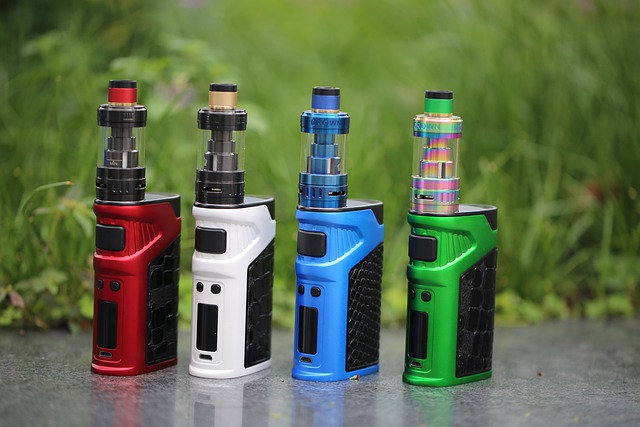Bentex Recalls Children’s Clothing
 Recently, the company Bentex recalled children’s clothing after a violation of the Federal Lead Paint and Lead Content Ban was discovered. The clothing presents a lead poisoning hazard to children: the ink painted on the recalled clothes contains lead levels that exceed the federal standards, presenting a lead poisoning danger to children. Lead can be toxic, so it is crucial to check whether your children’s Bentex clothing has been affected. If your child was made sick by Bentex children’s clothing, you should call the trustworthy Chicago product liability lawyers of the Moll Law Group. Billions have been recovered in product liability lawsuits with which we’ve been involved.
Recently, the company Bentex recalled children’s clothing after a violation of the Federal Lead Paint and Lead Content Ban was discovered. The clothing presents a lead poisoning hazard to children: the ink painted on the recalled clothes contains lead levels that exceed the federal standards, presenting a lead poisoning danger to children. Lead can be toxic, so it is crucial to check whether your children’s Bentex clothing has been affected. If your child was made sick by Bentex children’s clothing, you should call the trustworthy Chicago product liability lawyers of the Moll Law Group. Billions have been recovered in product liability lawsuits with which we’ve been involved.
Consult Moll Law Group About Your Child’s Bentex Clothing Injuries
Young children can suffer lead poisoning if they are exposed to lead beyond a certain level and face serious medical harm. Bentex recalled around 87,000 units of its clothes on November 23, 2022. Recalled clothes were printed with 9 different Disney themes. Their item and batch numbers can be found on the neck of the clothes or their side labels.
Recalled clothes included:
- Infant girls’ polyester 2-piece set printed with Minnie Mouse and white and yellow flowers through size 18;
- 2-piece sets for toddler girls that are printed with Minnie Mouse and gray shorts with black polka dots and Minnie Mouse heads;
- Toddler girls’ 2-pieces through 4-6X with Winnie the Pooh and “Hello Hunny” printed on them
- Girls’ 2-piece for sizes 4-16 printed with Disney Descendants characters and the words “Wickedly Fierce”;
- Children’s 100% cotton green long-sleeves 2-piece sets for infants and newborns that are printed with baby Yoda and frogs;
- 2-pack of newborn boys’ cotton shorts printed with Mickey Mouse from sizes 4-7;
- 3-pack of 100% cotton sweatpants with Mickey Mouse printed on them;
- Winnie the Poo and Tigger cotton 2-piece sets;
- Infant girls’ 2-piece set printed with “Best Buds” and Minnie Mouse.
 Illinois Injury and Mass Tort Lawyer Blog
Illinois Injury and Mass Tort Lawyer Blog


 Mockingbird
Mockingbird  Polaris Industries recently recalled certain models of its snowmobiles due to the risk of fires. The Pro-Ride, AXYS, and MATRYX snowmobiles were affected. It was found that electrostatic discharge within the fuel tank could ignite vapors while the snowmobile was being operated. This could result in the tank of the snowmobile bursting and starting a fire. The company has stated it will repair the affected units, about 138,000 of them sold within the United States. You can put your VIN number into
Polaris Industries recently recalled certain models of its snowmobiles due to the risk of fires. The Pro-Ride, AXYS, and MATRYX snowmobiles were affected. It was found that electrostatic discharge within the fuel tank could ignite vapors while the snowmobile was being operated. This could result in the tank of the snowmobile bursting and starting a fire. The company has stated it will repair the affected units, about 138,000 of them sold within the United States. You can put your VIN number into  Recently
Recently Recent scientific studies have revealed that using Tylenol or even generic acetaminophen while pregnant can result in a disruption to fetal development. This disruption can increase the gestating babies chances of having autism. As a result of this research, parents of children with autism and ADHD have brought product liability lawsuits against manufacturers of acetaminophen products. Lawsuits that pursue damages for autism allegedly caused by Tylenol have been consolidated into a
Recent scientific studies have revealed that using Tylenol or even generic acetaminophen while pregnant can result in a disruption to fetal development. This disruption can increase the gestating babies chances of having autism. As a result of this research, parents of children with autism and ADHD have brought product liability lawsuits against manufacturers of acetaminophen products. Lawsuits that pursue damages for autism allegedly caused by Tylenol have been consolidated into a  Johnson Health Tech Trading recently
Johnson Health Tech Trading recently  Recently Kia
Recently Kia  Recently, a woman
Recently, a woman  Around 20,000 women get an ovarian cancer diagnosis each year. For more than half, the illness is fatal. Johnson & Johnson has spent billions on lawsuits related to talc. A recent piece in the New Yorker outlined the
Around 20,000 women get an ovarian cancer diagnosis each year. For more than half, the illness is fatal. Johnson & Johnson has spent billions on lawsuits related to talc. A recent piece in the New Yorker outlined the  Initially, Juul Labs sold pods for its e-cigarettes in a wide range of flavors and promoted them using strategies that would appeal to young people. Teens began vaping at school, between classes and during breaks. However, in recent years, the company has come under scrutiny; the public has learned that teens are getting addicted while vaping, and harmed. Recently, Juul announced that it will pay close to $440 million to
Initially, Juul Labs sold pods for its e-cigarettes in a wide range of flavors and promoted them using strategies that would appeal to young people. Teens began vaping at school, between classes and during breaks. However, in recent years, the company has come under scrutiny; the public has learned that teens are getting addicted while vaping, and harmed. Recently, Juul announced that it will pay close to $440 million to